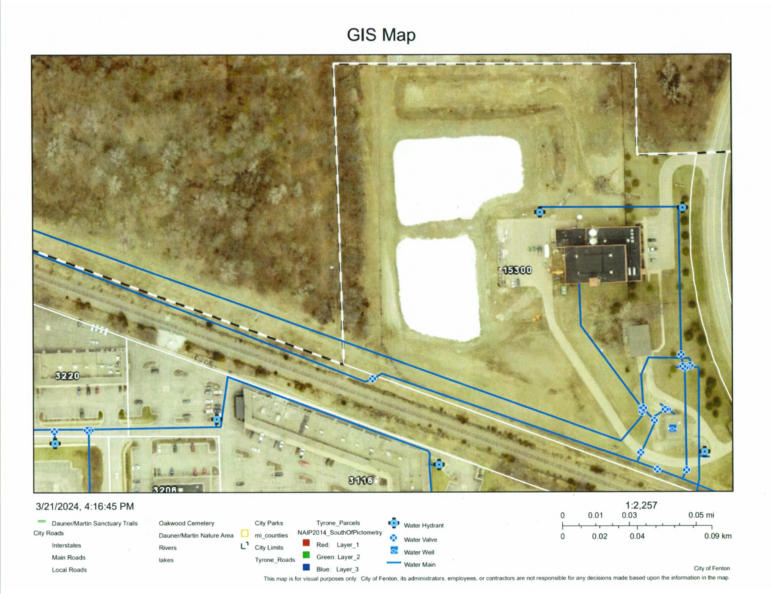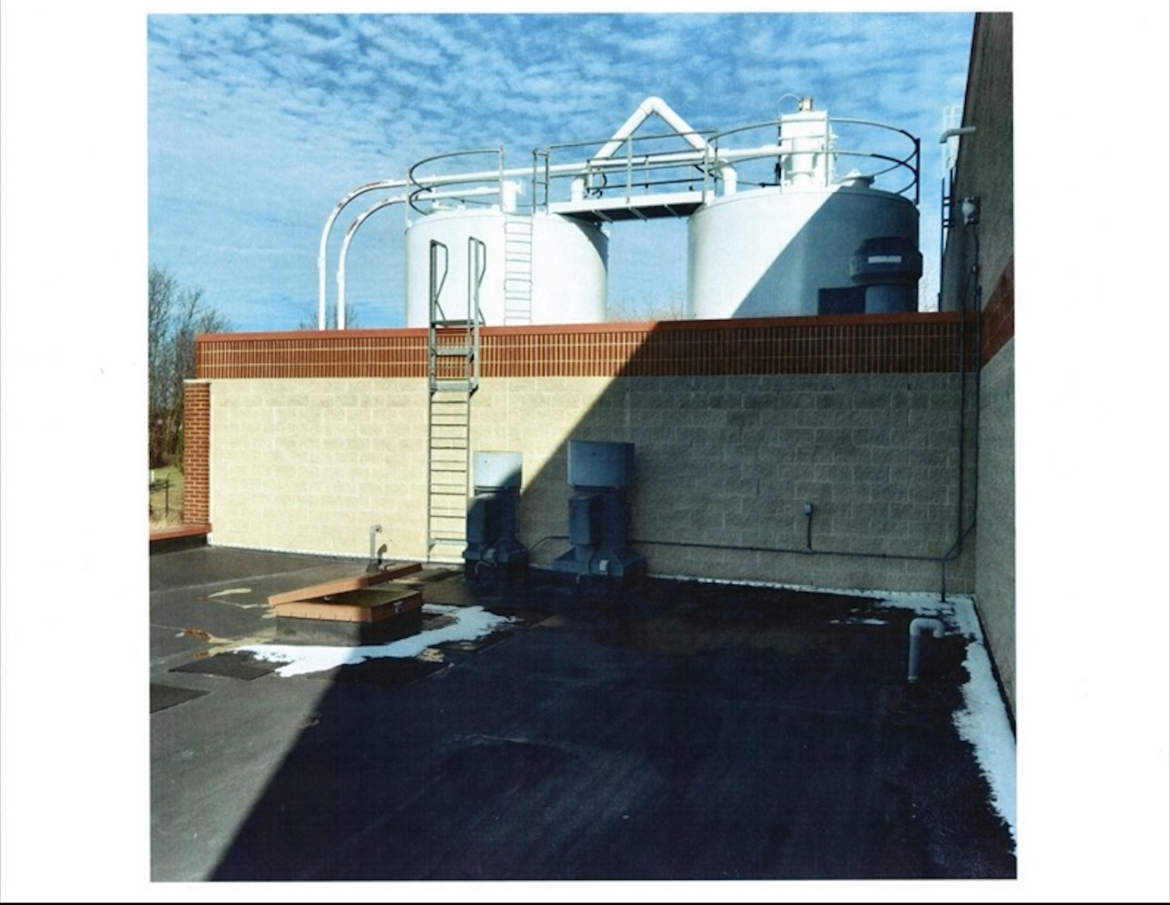The city of Fenton is in the process of cutting costs in the city’s water softening process. Water softening occurs when water treatment facilities use lime, or calcium hydroxide, to remove heavy metals and other excessive minerals that encourage scaling and algal blooms. In order to remove the lime, Fenton City Manager Lynn Maryland said the city has been considering new options, especially regarding transportation, which is the most expensive part of the water treatment process.
During treatment, groundwater is drawn into monitor wells, where the water undergoes aeration to remove dissolved gasses, followed by a chlorine treatment and then lime. The byproduct of this is process is described as lime “sludge.” All water treatment facilities are required to keep this sludge from reentering into local streams and rivers.
“This byproduct then is taken and put into lagoons in order to not contaminate the groundwater,” said Stephen Guy, the Water Superintendent of Fenton.
City Manager Lynn Maryland is responsible for all city operations including soil and water, and deals with costs and funding. While some of the sludge is taken to these lagoons, some of it also gets reused at local farms to balance the acidity of the soil.
“We hire a company to take away the lime sludge and haul it away to farmers’ fields to be repurposed for pH in the soil. Although it gets reused, it’s still expensive to get removed and is the main thing we have to work around when it comes to budgeting,” Maryland said.
In 2015, Fenton used a total of 650 tons of lime to treat the waterways, which cost more than $150,000, including about $45,000 for lime removal. In 2023, Fenton used a total of 548 tons of lime, which cost $243,000, including $125,000 for removal. In 2023 Fenton used less lime because less water was treated, but the cost of lime increased by 40%.
In 2008, the cost of transporting the sludge to only two lagoons was $225,000. Since then, Stephen Guy committed extensive research to get the cost down to $175,000, but he is still looking for ways to lower that number, as it’s steadily increasing as the years go by. The recent increase was caused due to competition between multiple companies, which eventually caused others to back out of the contract, making it hard to find a lower price.
Robin DeWyre, a certified professional geologist and Vice President of WSP, a sustainable engineering firm, is experienced in testing soil and groundwater for contaminants around landfills and is responsible for attaining and handling the permit necessary to use the lime chemical placed into the facility’s monitoring wells, which are used to assess the softening process.
“The permit is in place so that the state agency can track the discharge, they have a permit application where we provide the state with information of processes and what the chemical makeup is, making sure you’re not contaminating the ground,” DeWyre said.
Once that permit is attained, they must do affluent tests monthly, reporting what they discharge at the plant and quarterly reports on monitoring wells.

The Water Department of Fenton, as well as neighboring cities including the Lansing Board of Water and Light, are trying to come up with alternatives to using the lime in order to decrease the cost of the process. Fenton has applied for a grant for studies to find a different and more environmentally friendly water softening processes.
As of now, the lime removal costs could be as much as $500,00, so if the grant doesn’t come through, taxpayers within the Fenton Water Department will pay for the rising cost of lime removal.
